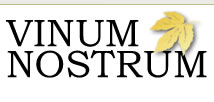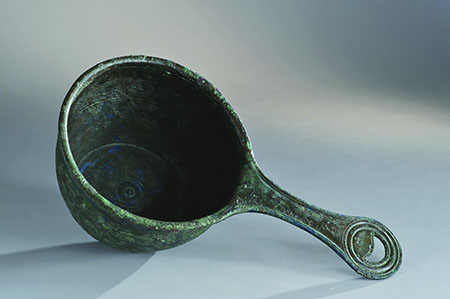Back to section: Grapes and wine in Pompeii
Casserole
1st century A.D.
Soprintendenza Speciale per i Beni Archeologici di Napoli e Pompei
Inv. 4947
The casserole, an element of tableware, was widely diffused in the Vesuvian area, where some examples made of silver have been found.












